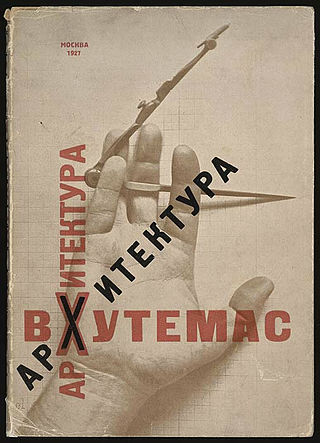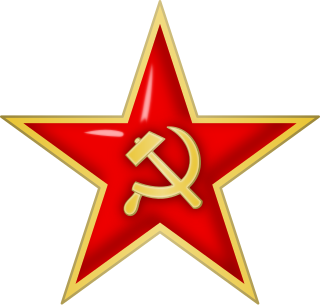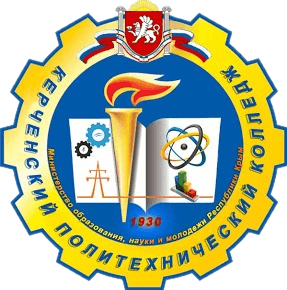
Russification, Russianisation or Russianization, is a form of cultural assimilation in which non-Russians, whether involuntarily or voluntarily, give up their culture and language in favor of the Russian culture and the Russian language.

Lviv Polytechnic National University is a public university in Lviv, Ukraine, founded in 1816. According to the Times Higher Education, as of 2024, it ranks first as a technical institution of higher education and second among all institutions of higher education after Sumy State University in Ukraine. Lviv Polytechnic is also the largest educational institution in Ukraine by the number of students and one of the largest by the number of faculties and departments.

A vocational school, is a type of educational institution, which, depending on the country, may refer to either secondary or post-secondary education designed to provide vocational education or technical skills required to complete the tasks of a particular and specific job. In the case of secondary education, these schools differ from academic high schools which usually prepare students who aim to pursue tertiary education, rather than enter directly into the workforce. With regard to post-secondary education, vocational schools are traditionally distinguished from four-year colleges by their focus on job-specific training to students who are typically bound for one of the skilled trades, rather than providing academic training for students pursuing careers in a professional discipline. While many schools have largely adhered to this convention, the purely vocational focus of other trade schools began to shift in the 1990s "toward a broader preparation that develops the academic" as well as the technical skills of their students.
In Russia, the state provides most education services regulating education through the Ministry of Education and the Ministry of Science and Higher Education. Regional authorities regulate education within their jurisdictions within the prevailing framework of federal laws. Russia's expenditure on education has grown from 2.7% of the GDP in 2005 to 4.7% in 2018 but remains below the OECD average of 4.9%.

A professional technical school – "professionalno-tehnicheskoye uchilishche" is a type of vocational education facility established in the former Soviet Union to train qualified industrial workers and servicemen. Such schools are widespread in post-Soviet countries.

Education in the Soviet Union was guaranteed as a constitutional right to all people provided through state schools and universities. The education system that emerged after the establishment of the Soviet Union in 1922 became internationally renowned for its successes in eradicating illiteracy and cultivating a highly educated population. Its advantages were total access for all citizens and post-education employment. The Soviet Union recognized that the foundation of their system depended upon an educated population and development in the broad fields of engineering, the natural sciences, the life sciences and social sciences, along with basic education.

Vkhutemas was the Russian state art and technical school founded in 1920 in Moscow, replacing the Moscow Svomas.
Technikum or Technicum may refer to:

The military ranks of the Soviet Union were those introduced after the October Revolution of 1917. At that time the Imperial Russian Table of Ranks was abolished, as were the privileges of the pre-Soviet Russian nobility.

The Suvorov Military Schools are a type of boarding school in the former Soviet Union and in modern Russia and Belarus for boys of 10–17. Education in these schools focuses on military related subjects. The schools are named after Alexander Suvorov, a well-known 18th century Russian general.

Industrialization in the Soviet Union was a process of accelerated building-up of the industrial potential of the Soviet Union to reduce the economy's lag behind the developed capitalist states, which was carried out from May 1929 to June 1941.

There existed an evolved system of military education in the Soviet Union that covered a wide range of ages. The Soviet Armed Forces had many tri-service educational opportunities as well as educational institutions for the Soviet Ground Forces, the Air Forces, and the Navy. The Soviet Border Troops, the KGB and the Internal Troops also maintained service academies.
Vladimir Vasil'evich Simonov was a Russian (Soviet) design engineer working in the Tula Arms Plant.

Estonian Maritime Academy of Tallinn University of Technology is a vocational university in Estonia. It is one of the schools of Tallinn University of Technology and it is the only educational institution in Estonia that offers professional higher education, Master’s and Doctoral level education in the maritime field. The university is located in the capital Tallinn but also has two centres in Saaremaa. In addition to higher education, the school contributes to research, provides training and offers services. The Academy also holds a one of a kind Simulator Centre and has a whole dedicated floor of hi-tech laboratories.
Ural Technological College is a higher education institute in Zarechny near Yekaterinburg, Sverdlovsk Oblast, Russian Federation.
This article includes railway colleges/universities/higher-educational-institutes in the Russian empire, the Soviet Union, and the Post-Soviet states.
In 19th century German education, Technicum was a lower grade of vocational schools, with training of 2.5–4 years.

Kerch Polytechnic College is a higher education institution in Kerch, Crimea. It trains personnel in 16 specialties, and about 300 students enroll for first-year studies at the college annually.

The cultural revolution was a set of activities carried out in Soviet Russia and the Soviet Union, aimed at a radical restructuring of the cultural and ideological life of society. The goal was to form a new type of culture as part of the building of a socialist society, including an increase in the proportion of people from proletarian classes in the social composition of the intelligentsia.
The Crimean Tatar Pedagogical Institute, also known as Totayköy Pedagogical Institute, was a Crimean Tatar university which existed from 1922 to 1931. Originally located in Totayköy, the institute moved to Simferopol, after two years.













